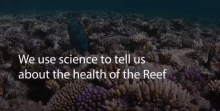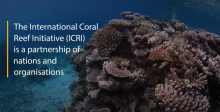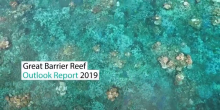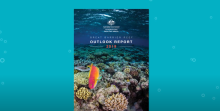- All pages
- Primary school
- Middle school
- Senior school
How we use science to manage the Great Barrier Reef
A video explaining how the Great Barrier Reef Marine Park Authority manages the Great Barrier Reef.
What is the International Coral Reef Initiative?
A Video explaining the International Coral Reef Initiative (ICRI). Australia is a founding member of the ICRI — a partnership of nations and organisations working together on coral reefs and related ecosystems around the world.
Great Barrier Reef Outlook Report 2019
Video of our 2019 Outlook Report highlights the urgent need for our continued and accelerated action to improve the long-term outlook for the Great Barrier Reef.
What is the Great Barrier Reef Outlook Report?
Climate change is the biggest threat to coral reefs worldwide. Check out this explainer video for a summary of the Reef’s long-term outlook and what’s being done to protect this great natural icon.
Monitoring for management: Reef 2050 plan?
The Reef 2050 Integrated Monitoring and Reporting Program is a coordinated and integrated monitoring, modelling and reporting program for the Great Barrier Reef and its adjacent catchment that will help track the progress towards targets and objectives of the Reef 2050 Plan, under the plan’s seven themes. This will be a key input to assessing the effectiveness of the plan.
What is the Reef 2050 Plan?
A video explaining the Reef 2050 Long-Term Sustainability Plan (Reef 2050 Plan). The Reef 2050 Plan was developed by the Australian and Queensland governments, together with its partners, including Traditional Owners, industry, scientists and communities, as an overarching strategy for managing the Great Barrier Reef.
Pagination
No matching result found.
Pagination
- First page
- Previous page
- …
- 13
- 14
- 15
- 16
- 17
- 18
- 19
- 20
- 21
No matching result found.
Pagination
- First page
- Previous page
- …
- 15
- 16
- 17
- 18
- 19
- 20
- 21
- 22
- 23
No matching result found.
Pagination
- First page
- Previous page
- …
- 16
- 17
- 18
- 19
- 20
- 21
- 22
- 23
- 24






